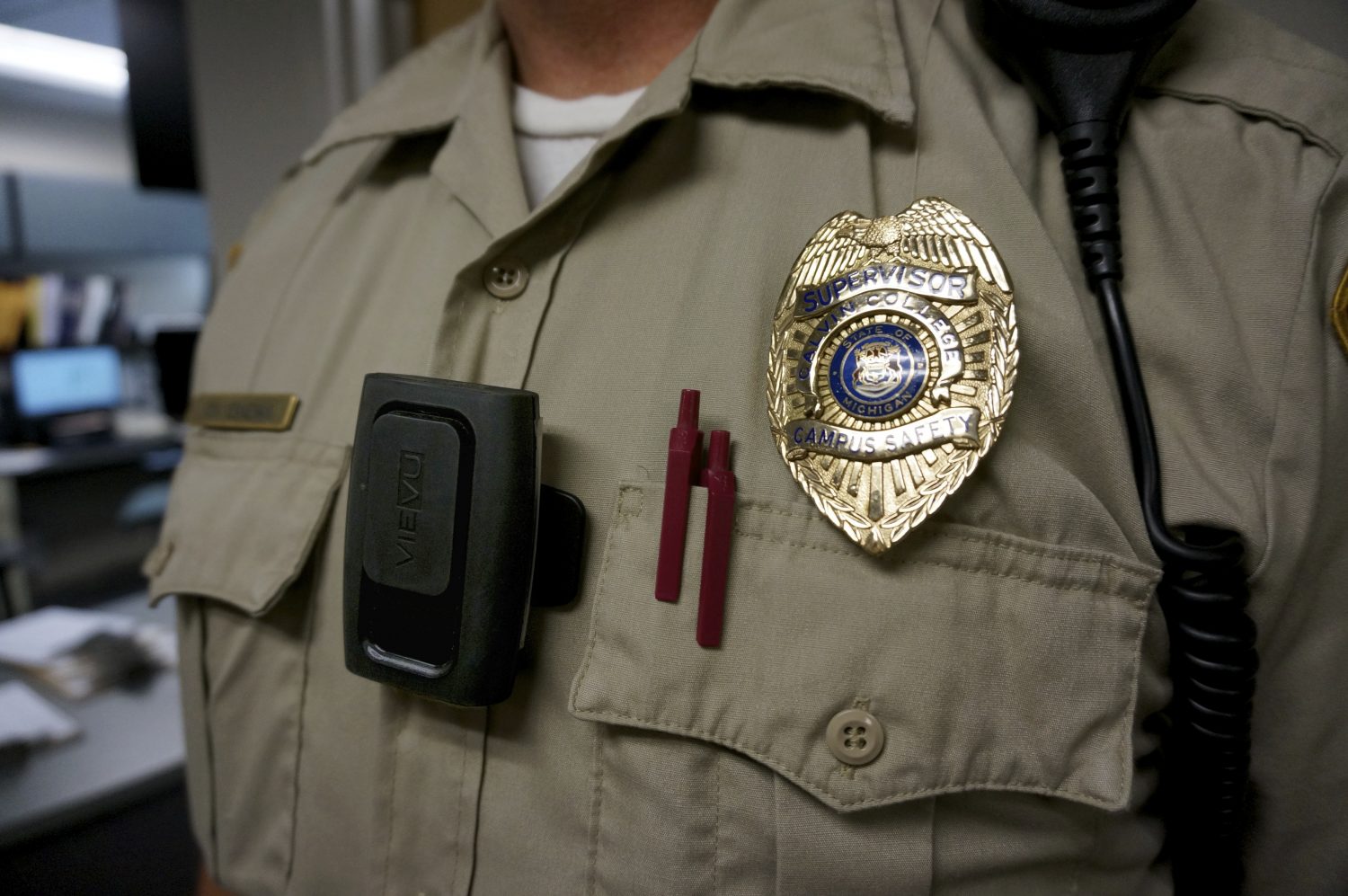Campus safety patrol officers are wearing chest cameras on call as of this month.
The cabinet approved the policy in August for full-time adult campus safety staff to be equipped with small cameras when they’re on call. Patrol supervisors position cameras the center of their chests to record both audio and video.
Campus safety director William Corner believes that this newly developed recording system will act as a “neutral third party” for confrontational situations.
“It has a positive impact on both sides of the camera,” he added.
While the decision to install cameras has been in process for a while, the conversation started after campus safety received a complaint by a past student who felt an officer acted inappropriately. Now these cameras act as a way to hold employees accountable and serve as an investigative tool.
Through this new system, officers of campus safety, not student employees, have evidence for confrontational situations with people who threaten the safety of the campus.
Gino Berlin, a junior student officer, pointed out that campus safety officers don’t only deal with students.
“Last year there were at least four instances that I was working where the supervisor had to confront non-students on Calvin’s campus,” he said.
In two of those instances, officers had to call the police. “So it’s also to ensure personal safety with that, too,” Berlin said.
Corner explained that recordings from these cameras maintain transparency and a level of accountability between both the officers and people involved. He also expects it to reduce complaints of discourtesy and resolves officer-involved issues much faster.
“[Use of the cameras] impacts the behavior of all involved, so can change or modify it in a positive way. If someone’s feeling like they’re upset and angry, they can be confrontational. And if you say, ‘Excuse me, but I’m recording our conversation,’ that can have an impact,” Corner explained.
“We’re going to be up-front and honest about the fact we’re using it,” he added.
This process for making the decision about cameras had been going on for a year and a half before the final call was made.
“[The plan has] gone through several revisions, with the intent of making sure that the cameras are capturing what we want to capture but not being used inappropriately,” Corner said.
New policy regarding the cameras will dictate the circumstances in which campus safety officers are required to turn on their cameras.
This new system for Calvin College’s security is also part of a developing trend in investigative technology that many police departments and college campuses are using.
“They’re trying to reform the division of campus safety to make it as professional as possible,” Berlin said about the department leadership.
Campus safety uses the brand VIEVU for small, compact cameras that begin recording as soon as the lens is exposed. At the end of a shift, officers plug the cameras into their office computers. They only have access to their own material. There is also no way of altering or editing the footage that has been taken.
“At this point, it’s really new to us. We haven’t had a lot of use of it yet,” said Corner, who explains that the cameras are under a lease that ends when school year is finished. When that time is reached, the department will have ownership of the cameras and will decide if they want to continue with this system or not.
“They’re a great accountability piece and a good tool for investigative purposes,” he concluded.









